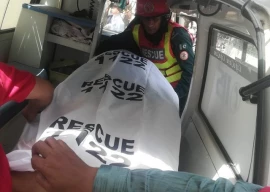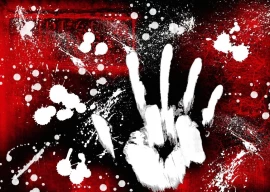
Established by the departments of psychology and journalism at the University of Peshawar (UoP) with the help of the Deutsche Welle Academy, the centre offers therapy and counselling to journalists.
“There seems to be some social stigma due to which they (journalists) don’t want to come to the centre,” said Erum Irshad, the psychology department chairperson, while talking to journalists at Peshawar Press club (PPC) on Monday. The session was arranged at the press club to make journalists aware of the services offered at the centre.
Absolute confidentiality
“In our society, those seeing a psychologist are considered to have a ‘mental disorder’,” said Irshad. In a Reuters report last month, a senior television journalist had expressed complementary concerns, that “the major challenge is your colleagues …they speak against you.” However, the same report had stated the centre kept “patient confidentiality absolute”.
Elaborating on patient confidentiality, Irshad said, “We would keep extreme secrecy and the names of those who visit would never be shared with anybody else.”
Acknowledging it was hard to dodge the stigma, Irshad emphasised on the importance of dealing with one’s trauma in a timely fashion. “Reporters’ work is not free from routine stress and tensions, and then they have to face monumental tragedies in the form of militancy; therefore almost all journalists face trauma—albeit of different levels.”
Irshad added, “Trauma or stress [disorder] will not only [negatively] affect his work but also his family life.”
The centre is one of the first in the country offering such services to journalists, therefore, the chairperson added, people from the media should have been more enthusiastic about it. “Very few visit the centre.”
Going over the services, Irshad said the centre provides counselling; essentially to help journalists draw a balance between work, home life and mental health. “It is free of charge – such counselling sessions with professionals in other parts of the country would result in bills in the thousands,” said Irshad, “but we are providing you free counselling.”
The Competence and Trauma Centre opened last month in the premises of an existing clinic at the psychology department.
Irshad was accompanied by the Journalism and Mass Communication department chairperson Dr Altafullah Khan.
“A lot happens in K-P and the region; the focus of every national and international media group is on K-P and the Federally Administered Tribal Areas where journalists face new challenges in addition to routine militancy,” said Khan. “The effects of those [challenges] on journalists who are the first at every scene, at every tragic accident, can be severe psychological conditions which can change their whole life, including of their families’.”
Published in The Express Tribune, December 16th, 2014.






































COMMENTS
Comments are moderated and generally will be posted if they are on-topic and not abusive.
For more information, please see our Comments FAQ